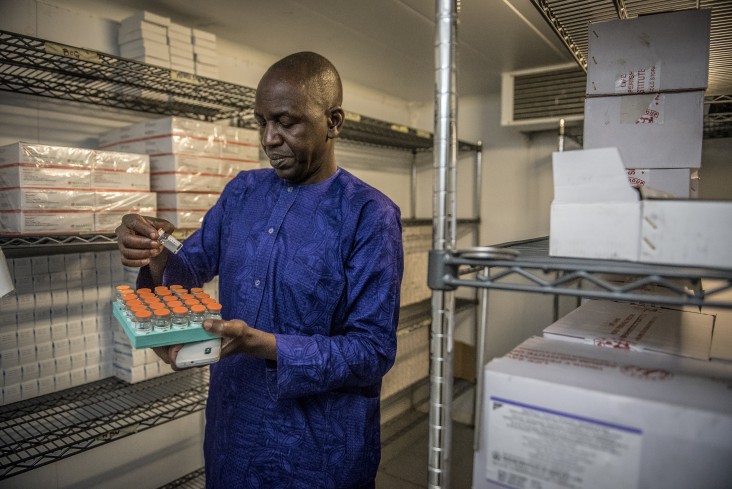Speeches Shim

The success of health programs depends on medicine that is both safe and effective. In Nigeria, USAID works with the national government to increase access to quality-assured medicines by strengthening the country’s capacity to test health products domestically.
In the past year, USAID has helped two public-sector funded laboratories in Nigeria to achieve international accreditation for testing quality control. This significantly strengthens the country’s capacity to address its health needs. Instead of relying on other countries for quality-assured medicines, Nigeria has the capacity to test its own supplies. Enormous time and money is saved, and this international accreditation positions Nigeria to support neighboring countries with drug procurement. Victor Abiola, Director of Nigeria’s National Agency for Food and Drug Administration and Control Laboratory Services, explains, “the real value of accreditation comes from institutionalizing the type of quality management system that enables accreditation in the first place. This sets the foundation for efficient, cost-effective medicine testing and provides a springboard for expanding a laboratory’s scope of services.”
The labs created detailed plans for their own graduation from external assistance. An important feature of the plans was peer-to-peer collaborative learning where staff from internationally-accredited labs assisted other institutions to prepare for the accreditation process. This support was one of the reasons that the Kaduna Laboratory became one of the first National Quality Control Laboratories on the African continent to achieve internationally-recognized accreditation.
The programmatic returns were immediate. Testing by the accredited laboratories enabled Nigeria’s National Agency for Food and Drug Administration and Control to approve thousands of medicines for the Nigerian market, both those produced in Nigeria and those imported. Strengthening domestic drug regulation is important for the long-term sustainability of a health system; local authorities are held accountable for quality standards and the population gains access to medicines more quickly and affordably, on a more reliable basis. By helping to strengthen in-country capacity for quality control, USAID is partnering with countries like Nigeria on their Journey to Self-Reliance.
Download the PDF version of this story. [PDF, 205K]

Comment
Make a general inquiry or suggest an improvement.